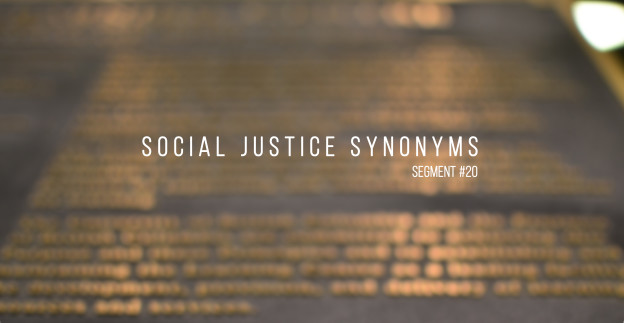Welcome back to Social Justice Synonyms, a column at The Talon that discusses the power of language and why we should unlearn the words that maintain the status quo. For more insight, check out our past segments here.
This week’s segment looks at needlessly gendered terms, specifically the phrase “guys/you guys.”
Greeting a group of friends with “Hey, guys!” has become so embedded in our everyday speech that most of us likely don’t notice what we’re saying. Regardless of our gender identities and the identities of the folks around us, “guys” is often used as a plural noun to address a group of people. While this term is relatively informal and most used to address close friends or people who we’ve gotten to know, it still has the power to marginalize and erase many different identities within your group settings. If phrases like “you guys” are meant to be inclusive and neutral, why is masculinity covering up so many other identities?
Saying “guys” when addressing a group of people of different genders has become so common that almost any dictionary definition will make note of it1. It doesn’t just happen in English – for example, if my grade school French class memory serves me right, the pronoun “ils” (meaning masculine plural “they”) is used for a group of people if a minimum of one person identifies as male or masculine, regardless of how many folks in the group identify otherwise. When thinking about how languages gender their nouns, masculinity is often positioned as the default, all-encompassing standard.
In many ways, masculinity may be seen as “gender-neutral” or “androgynous” – for example, this occurs in the realm of gender presentation. Speaking from my experience as a non-binary person (I do not identify as either of, or between, the two Western binary genders of man and woman2), there’s a common notion that non-binary folks, and particularly those who are AFAB (assigned “female” at birth by a doctor, often based on genitalia), must incorporate “menswear” into their presentation in order to be “truly” non-binary or androgynous. This narrative erases femme identities, as well as folks who do not wish to be associated with masculinity or “maleness.” While gender identity and gender expression/presentation are two different things, masculinity is still framed as a norm or requisite for gender-neutrality, and phrases like “you guys,” “mankind,” and “he” (used as a gender-neutral pronoun from the early-18th to mid-20th centuries) work in the same way.
This inherent masculinity-as-standard concept is one of the main reasons why using “guys” as a greeting for a multi-gender group is harmful. By imposing “maleness” as the default, all other genders are pushed to subordinate status, reinforcing patriarchal, (cis)sexist power structures that privilege men. It fails to acknowledge the multitude of gender identities and expressions that may exist within a group and uses a very gendered, masculinized term as a catch-all to describe these identities.
Additionally, using “guys” to address a group of people assumes that everyone in the group is comfortable with being called a “guy.” This creates an especially unsafe space for non-binary folks, two-spirit people, and other identities that do not fall within the two Western colonial binary genders, as well as trans women and AMAB (assigned “male” at birth) transfeminine folks who experience the overlapping oppressions of sexism and transmisogyny (the common punchline of trans women as men/guys in dresses being an example of this).
In short, needlessly gendered terms such as “you guys” reinforce male structural dominance over other gender identities and assumes a person’s comfort with being labelled as a “guy.” Consider the ways in which gendered terms create unsafe spaces for many folks, and the positive impact of de-gendering your language to create inclusive spaces for everyone in your group settings.
| “Hey, guys!” | “Hey, folks, friends, pals, comrades, all, y’all, everyone!” |
| “What are you guys up to today?” | “What are your plans for today?” |
| “I love you guys!” | “I have so much love for all of you! I couldn’t ask for better people to smash the white supremacist colonial capitalist cisheteropatriarchy with.” |
Marlee is a second-year GRSJ and sociology double major at UBC who is passionate about queer and trans activism, radical care, and petting dogs.
- Most of these dictionary websites state that “guys” is used to describe people of “either sex.” It’s important to acknowledge that this term erases the experiences of intersex folks, who may not easily “fit” into the binary Western stereotypes of “male” and “female” bodies.
- There are so many ways to identify as non-binary (the definition that I have here describes how I view my identity and does not reflect the experiences of all non-binary folks), and so many ways to describe how you fit between or outside the gender binary. Remember to never assume someone’s gender identity and the words that they use to describe it!




